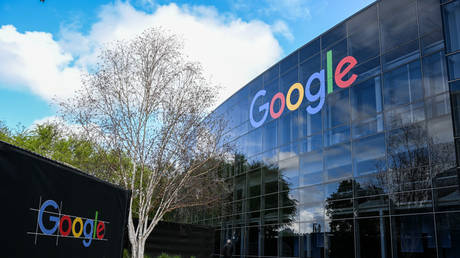Google spurns EU demands for fact-checking – Axios
US tech giant Google has chosen not to commit to the European Union’s strategy regarding content moderation.. source:TROIB RTS

In a letter obtained by the outlet, the tech giant affirmed its intention to maintain its current content moderation practices and will not comply with calls to incorporate fact-check results into its ranking systems or content removal procedures.
On Thursday, Kent Walker, Google’s president of global affairs, communicated the company's position in a letter to Renate Nikolay, a deputy director general at the European Commission. Walker criticized the fact-checking requirements set forth in the EU’s revised Code of Practice on Disinformation, stating that they are “not appropriate or effective” for Google’s platforms.
The EU Code of Practice on Disinformation, originally established in 2018, was strengthened and reintroduced in 2022 in association with the Digital Services Act. The updated Code expects tech companies to implement measures against disinformation, which includes integrating fact-checking.
Although the Code has been voluntary until now, EU officials are advocating for its transformation into a mandatory framework under the DSA. Google’s refusal to comply indicates a departure from these obligations, with Walker confirming that the company will withdraw from the voluntary agreement prior to it becoming obligatory.
Walker highlighted Google’s existing content moderation techniques, pointing to features such as SynthID watermarking and AI disclosures on YouTube as examples of the company's proactive measures. He also noted the effectiveness of these strategies during a busy election cycle last year.
Additionally, Walker mentioned a YouTube feature launched in 2022 that allows users to add contextual notes to videos. This initiative, akin to X’s Community Notes, is presented as a significant advancement in content moderation, though it does not equate to conventional fact-checking.
Google's stance reflects wider trends across the tech industry, as major companies pull back on their commitments to content oversight. Last week, Meta announced a reduction in its fact-checking activities on platforms like Facebook and Instagram. Likewise, X, under Elon Musk’s leadership, has significantly decreased its moderation efforts since his takeover in 2022.
Both Facebook and Twitter have faced accusations of censoring dissenting views in recent years, particularly concerning Covid-19 vaccines and the discredited ‘Russiagate’ narrative regarding alleged Russian interference in the 2016 US elections. In a recent appearance on the Joe Rogan Experience podcast, Meta CEO Mark Zuckerberg suggested that pressure from the US government influenced his company's decision to censor content on Facebook during and after the 2020 election.
Allen M Lee for TROIB News
Find more stories on Business, Economy and Finance in TROIB business












